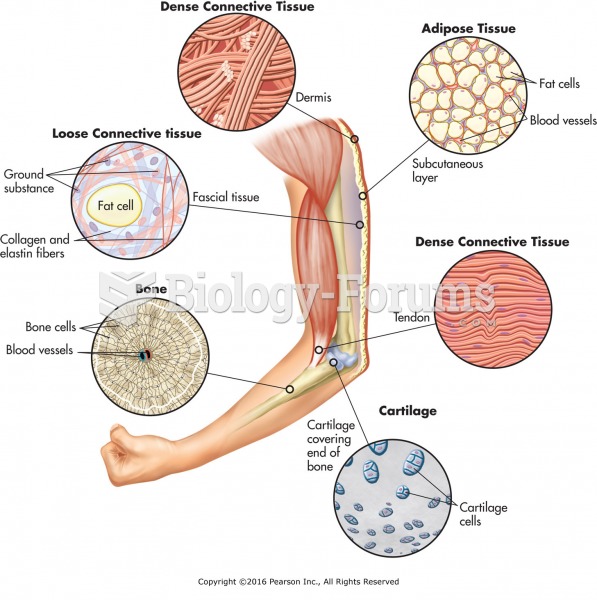|
|
|
The Romans did not use numerals to indicate fractions but instead used words to indicate parts of a whole.
Asthma cases in Americans are about 75% higher today than they were in 1980.
Chronic marijuana use can damage the white blood cells and reduce the immune system's ability to respond to disease by as much as 40%. Without a strong immune system, the body is vulnerable to all kinds of degenerative and infectious diseases.
Thyroid conditions cause a higher risk of fibromyalgia and chronic fatigue syndrome.
According to the National Institute of Environmental Health Sciences, lung disease is the third leading killer in the United States, responsible for one in seven deaths. It is the leading cause of death among infants under the age of one year.







